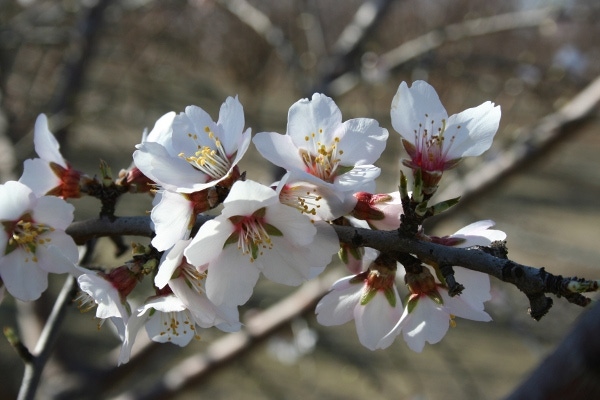December 6, 2017

The Almond Board of California (ABC) will sink $4.8 million into 60-plus independent, third-party research projects designed to formulate the next generation of farming practices for the famous tree nut.
These funds will add to the $70 million invested over the last four decades to improve how almonds can be better grown and processed.
The nearly $5 million in new research dollars was announced at the beginning of the 45th annual Almond Conference on Dec. 5 at Sacramento.
ABC also unveiled its first almond sustainability publication called Growing Good which describes the almond industry’s commitment to sustainability, including how farming and processing best practices continue to evolve based on research findings.
“Almond farmers’ growing practices and processors’ handling practices are rooted in science, and the almond industry has been investing in research that pushes the envelope and partnerships that break boundaries,” said Gabriele Ludwig, ABC’s director of sustainability and environmental affairs.
This new Growing Good sustainability publication promotes efforts and programs, including the annual Almond Conference, which support sustainable production practices.
The ABC began best almond practices research 44 years ago focusing on water sustainability, honeybee protection for almond pollination, and new uses for items produced in an almond orchard, including hulls, shells, and woody materials – all towards a ‘zero waste’ approach.
Here’s a breakdown of the accomplishments so far.
Water sustainability - California almond farmers have committed $6.7 million to fund 201 water research projects since 1982 focused on irrigation efficiency, groundwater recharge, and water quality. This investment has helped growers reduce the amount of water to grow almonds by about a third over the last 20 years.
A new water research project will include creating a smartphone app and heat sensing platform to more precisely determine irrigation needs to identify real-time irrigation needs and increase efficiency.
Honeybee health – The health of this essential pollinator for almond became an ABC strategic research priority in 1995. So far, the almond industry has committed $2.6 million dollars for 113 projects based on five major factors which impact bee health.
As a result of research, new orchard practices have helped keep bees safer for almond pollination. Six related research projects will begin this year with a nearly $300,000 investment.
Co-product innovation - The almond industry is committed to putting non-edible almond co-products to beneficial use through a $1.6 million investment in 58 research products. Nine studies funded this year will study how almond co-products may find a niche use in the automotive, pharmaceutical, and food industries, and more.
New research will explore almond shell utilization to create different types of biochar as soil amendments. If successful, biochar could help improve soil and plant health in backyard gardens, landscaping, and commercial agriculture.
You May Also Like




